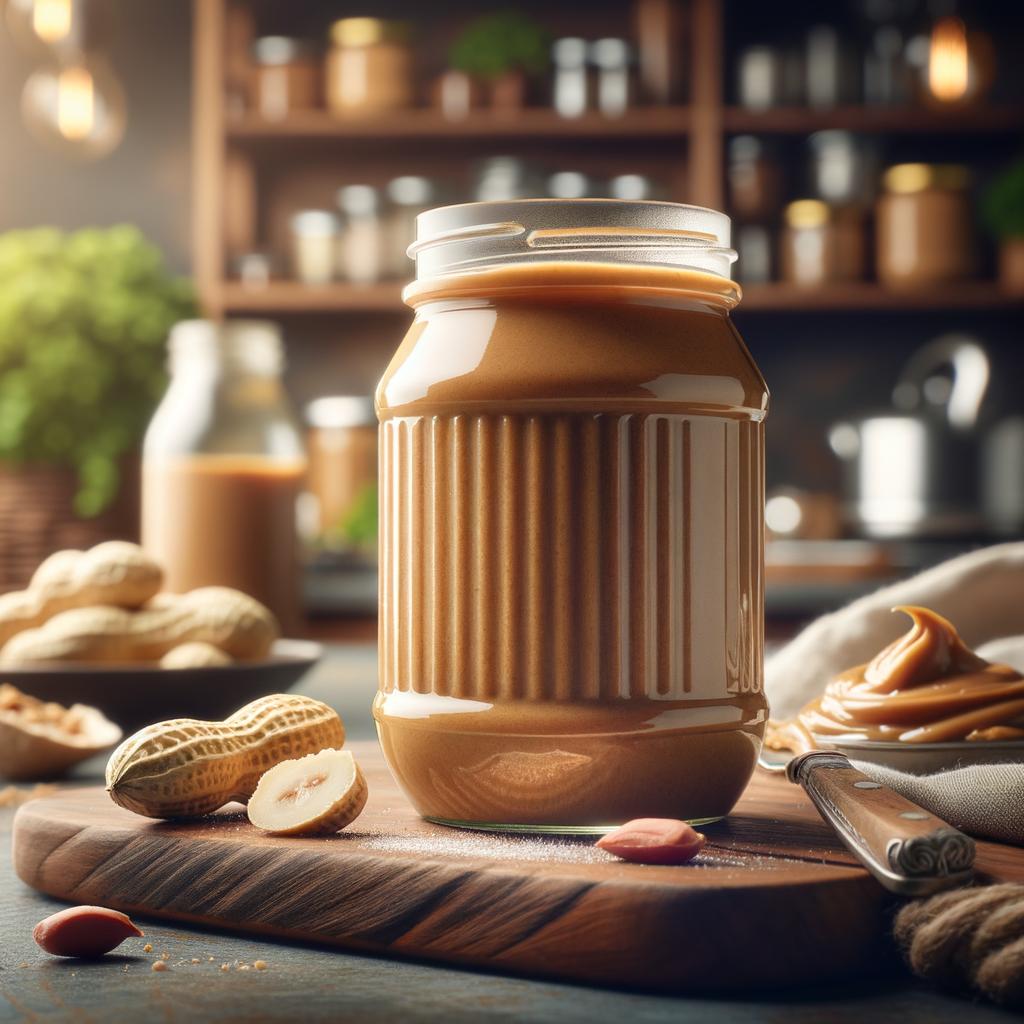Natural Peanut Butter

Description Natural peanut butter, a beloved staple in many kitchens, is a creamy, nutty spread derived from the humble peanut. Its appearance is a rich, earthy brown, often with a layer of oil on top that testifies to its natural, unprocessed state. The texture is thick and velvety, but with a slight graininess that speaks of the peanuts from which it was made. Its flavor profile is robust and nutty, with a depth that can be both sweet and savory, making it a versatile player in the culinary world. The unique characteristic of natural peanut butter is that it typically contains only peanuts and salt, devoid of the additional oils and sugars found in more processed versions.
Primary Uses Natural peanut butter is a versatile ingredient that can be used in a variety of ways in cooking and food preparation. It is the star of the classic peanut butter and jelly sandwich, a beloved treat in American cuisine. It is also a key component in many Asian dishes, providing a rich, nutty flavor to sauces and marinades. In baking, it shines in cookies, muffins, and pies, while in the world of desserts, it is a popular addition to ice creams and chocolates. Beyond the culinary sphere, natural peanut butter is often used as a nutritious treat for dogs and as a binder in birdseed cakes.
History The history of peanut butter is a fascinating journey. Its origins can be traced back to the Aztecs, who ground roasted peanuts into a paste. However, it was not until the late 19th century that peanut butter as we know it began to take shape, with inventors and physicians exploring its potential as a protein substitute. The popularity of peanut butter has grown exponentially over the years, with natural peanut butter gaining recognition for its health benefits and superior flavor. There's an intriguing myth that Elvis Presley, the king of rock and roll, had an insatiable love for peanut butter and banana sandwiches, cementing its place in popular culture.
Nutritional Information Natural peanut butter is rich in nutritional value. It is packed with protein, making it a great source of plant-based protein. It's also high in healthy monounsaturated fats, which can support heart health. Additionally, it provides dietary fiber and is a good source of vitamins and minerals such as Vitamin E, B6, and magnesium. However, like any food, moderation is key due to its high calorie and fat content. Compared to regular peanut butter, natural versions typically have less sugar and no hydrogenated oils, making it a healthier choice overall. The story of natural peanut butter is a testament to the beauty of simplicity and the power of nature's bounty.

